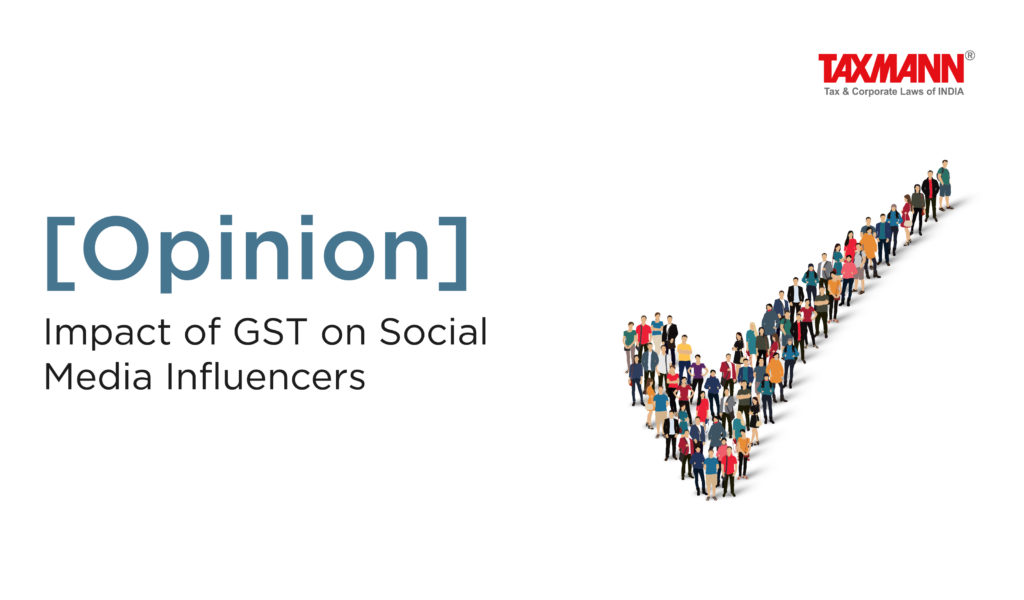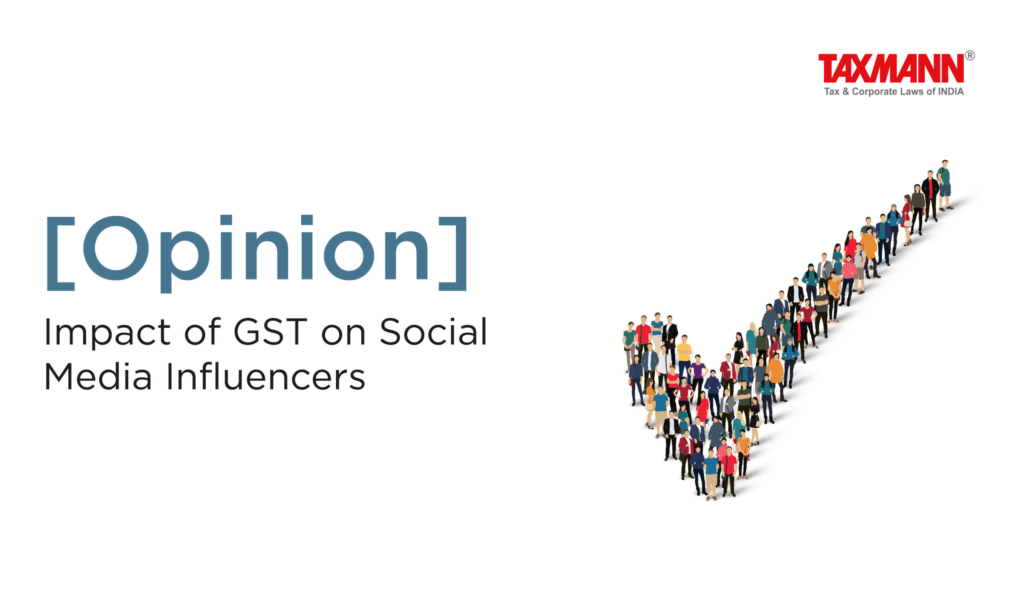
With great influence comes great responsibility… and GST
1. Introduction
In the past decade, the advent of social media platforms and the rise of influencers have revolutionized the way people consume content, make purchasing decisions, and perceive brands. Influencers, individuals who have amassed a substantial following on social media platforms have become powerful voices in shaping trends, consumer behaviour, and even societal norms. As influencers grow in popularity and profitability, tax compliance becomes a crucial aspect of their journey. In this article, we will explore how GST will impact the influencers.
2. Meaning of Influencer and Influencer Marketing
The term “influencer” might be relatively new, but the concept of influential personalities dates back to the early days of celebrity endorsements. However, the digital age has democratized influence, enabling ordinary individuals with passion, creativity, and authenticity to reach and connect with millions worldwide.
Influencers come in various forms – from fashion, beauty, and fitness enthusiasts to tech-savvy gamers, travel enthusiasts, and social activists. They do marketing by creating engaging content, sharing personal experiences, and offering product reviews, making them relatable and trustworthy figures in the eyes of their followers.
Brands have recognized the power of influencer marketing as an effective way to reach their target audience. By collaborating with influencers who align with their values and target demographics, brands can tap into a ready-made community of potential customers.
3. Taxability under GST
Under the GST Laws, GST shall be levied on supply of services by the service providers. As per Section 7 of CGST ACT, 2017 (‘CGST Act’), supply includes all forms of supply of goods or services or both such as sale, transfer, barter, exchange, licence, rental, lease or disposal made or agreed to be made for a consideration by a person in the course or furtherance of business.
Generally, influencers provide services such as sponsored posts, brand promotions, marketing, or content creation. They provide a platform to the companies for promoting or advertising their goods or services in lieu of consideration (whether monetary or non-monetary). They may also receive consideration from social media platforms for running ads on their channel or between their video content such as reels, videos, etc.
Therefore, the services provided by them would be treated as supply under GST laws.
Notably, it is important to explore other aspects of the GST law to understand the taxability of services provided by influencers. These are discussed in the ensuing paragraphs.
Click Here To Read The Full Article
The post [Opinion] Impact of GST on Social Media Influencers appeared first on Taxmann Blog.
